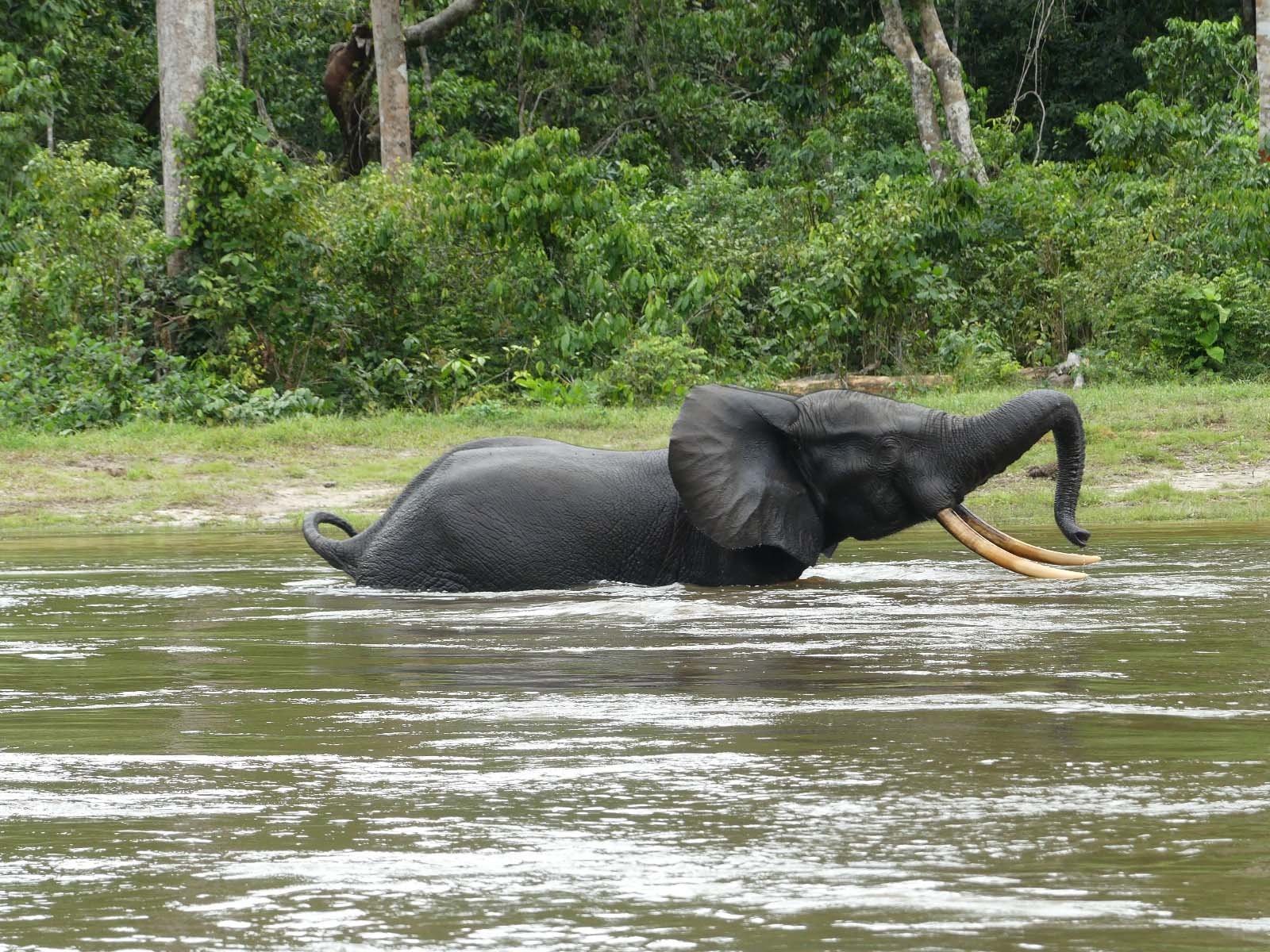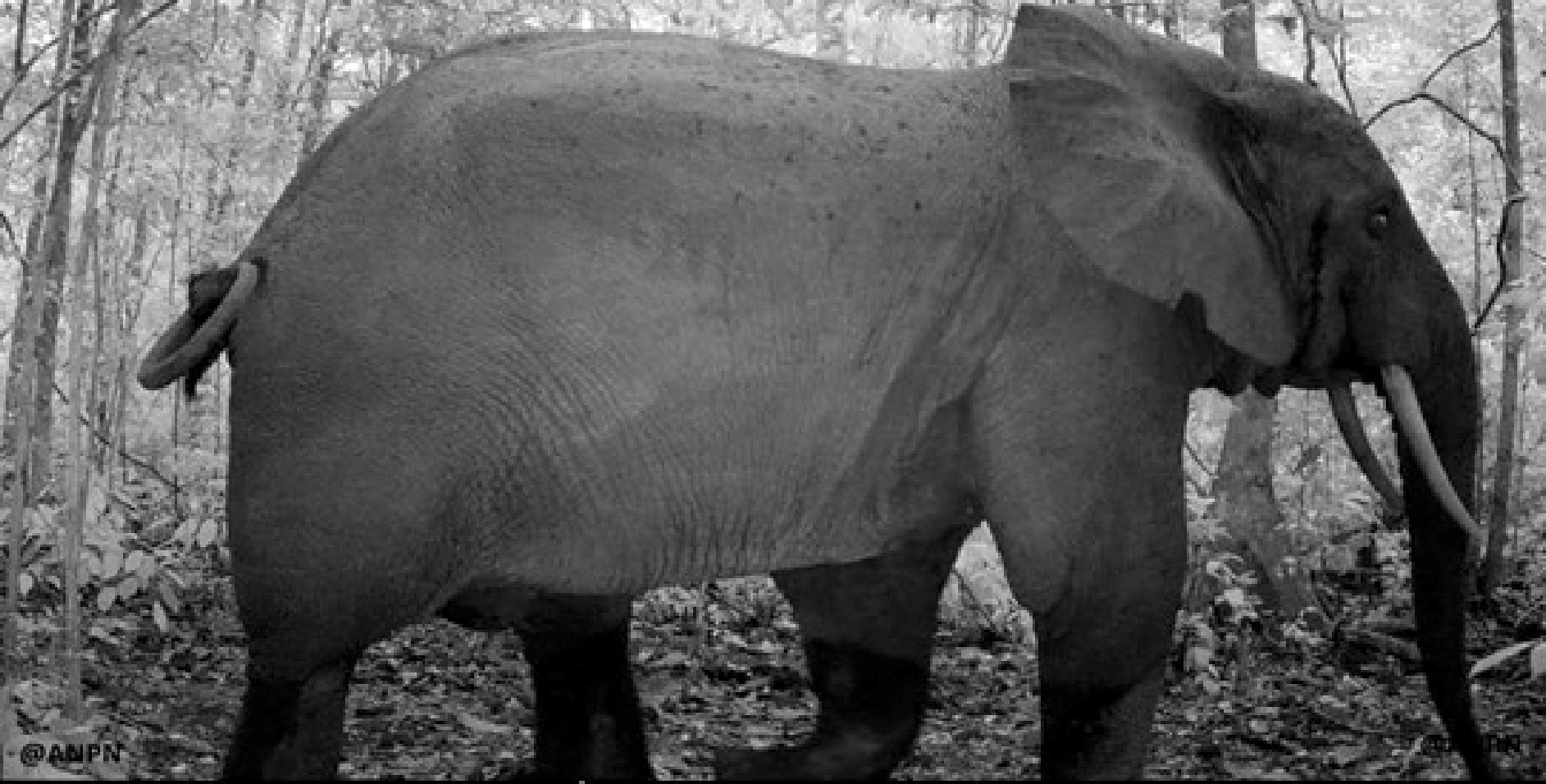Our first demographic study of African forest elephants in the Batéké Plateau National Park and its periphery, which has been made possible thanks to the support of the International Elephant Foundation, is recording key observations designed to help analyse the group structure and health of elephants within the project area. African forest elephants are classified as Critically Endangered and at high risk of extinction.
African forest elephants are classified as Critically Endangered and at high risk of extinction.
Body Condition Scoring
One of the key observations is Body Condition Scoring. This is an index for determining the condition of an elephant by assessing bodyweight based on visual evidence. The index is assigned numbers from 1 to 5 with 1 corresponding to an assessment of underweight or even thin, and 5 is overweight or even obese. The determination is based on observing the ribs, the pelvic bone, and the spine.
Assessments carried out on captive elephants, such as those in zoos, indicate that obesity is quite common. Generally, in wild populations this would not be the case, although body condition scores may change between the seasons as food availability varies. Based on camera trap analysis retrieved so far, our team have noted that a higher number of elephants than expected are registering 5 on the index, and therefore classified as overweight.
 Forest elephant in the Batéké Plateau National Park with a body condition score of 5
Forest elephant in the Batéké Plateau National Park with a body condition score of 5
Why Weight Matters
As with humans, carrying too much weight can cause a number of health problems, including heart disease and arthritis. Another concern is the impact that excess weight has on an elephant’s fertility. Both male and female elephants can be affected by reduced fertility when overweight. The ideal body score for a healthy elephant is 3.
.jpg?width=2191&height=1342&name=Ele%20body%20score%203%20(1).jpg) Forest elephant in the Batéké Plateau National Park with a body condition score of 3
Forest elephant in the Batéké Plateau National Park with a body condition score of 3
Why elephants gain excess weight
Obesity in captive elephants is thought to be caused because they live in enclosures a fraction the size of their natural range and therefore, they have limited opportunities for exercise. In addition, their food is usually easily accessible, less varied than the food available to their wild counterparts, and requires little energy or time to process. In the wild elephants can roam up to 30 miles a day. They also must forage for food, which is often being competed for by other wildlife.
Might similar factors be affecting the forest elephants in Batéké Plateau National Park? Habitat fragmentation and human encroachment has undoubtedly severely limited the historical ranges that would have seen African elephants travel large distances. Another factor that might be influencing their weight could be genetic causes. It is certainly something we would like to research further.


